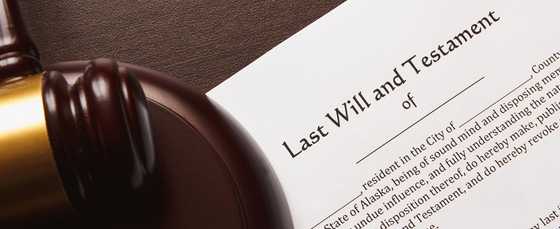Practice Areas
REAL ESTATE
Patrick J. Halpin, P.A. specializes in all facets of real estate law, such as guiding clients from offer to sale in the buying and selling of real property and litigating various disputes including foreclosures, evictions and community association issues.
Consistent with the goal of being a full service real estate firm and serving the needs of all our clients, the firm provides the following commercial and residential litigation services:
- Mortgage Foreclosures
- Lien Foreclosures
- Deficiency actions
- Evictions
- Buyer-Seller disputes
- Closing services
- Breach of Contract
- Quiet Title actions
- Title Insurance claims
- Mobile Home Disputes
- Ejectments
- Partitions
- Boundary and Easement disputes
- Tax Protests
- Condo and HOA disputes
- Slander of Title actions
- Unlawful Detainer
- Fair Housing Disputes
The firm also represent buyers, sellers, property owners, lenders, realtors, developers, churches and non-profit corporations in the following commercial and residential real estate transactions:
- Negotiate and draft purchase/sale contracts and leases
- Purchase Option agreements
- Title search and analysis
- Escrow services
- Negotiate and draft mortgage-based financing transactions
- Closing services
- Seller Financing
- Refinancing and loan workouts.
- Title Insurance claims
- Formation of Limited Liability Companies and Land Trusts
- Tax-free exchanges of real estate
- Consultation regarding complex real estate matters
- Code Lien mitigation
- REO transactions (bank-owned properties)
- Short Sale transactions
- Homestead protection
PROBATE
The process is critical to passing ownership of the assets to the decedent’s intended beneficiaries. If the decedent left a valid will, unless the will is admitted to probate in the court, it will be ineffective to pass ownership of the probate assets to the decedent’s beneficiaries. In the event the decedent lacked a will, probate is necessary to effect a transfer of the subject assets to those entitled to receive them pursuant to Florida law.
Estate issues and the proceedings themselves may range from simple to complex depending on various factors, including the total value of the estate assets. There are two types of actual probate administration in Florida: Formal Administration and Summary Administration. Formal Administration is Florida’s traditional form of probate. It commences with a petition to open the estate and appointment of the personal representative. The Summary Administration is a more condensed proceeding which is shorter in time with less attendant expense. It is utilized when the value of the decedent’s estate is under $75,000 or the decedent has been dead for more than two years.
There also exists a non-court supervised administration proceeding called Disposition of Personal Property Without Administration. This option is available provided the assets consist solely of property exempt from decedent’s creditors and non-exempt personal property of limited value as defined by Florida law.
Frequently asked questions about the overall process and problems that may arise are listed below. Feel free to contact the firm gratis to discuss such questions.
- What if the decedent dies without a will?
- Who can serve as the personal representative?
- Does a probate action involve all the assets of the deceased person?
- How do the bills of the deceased get paid, especially the funeral expenses?
- Can the personal representative access the decedent’s bank accounts?
- How does the personal representative get compensated?
- What are the rights and obligations of the decedent’s family?
- What if the estate lacks sufficient assets to pay the decedent’s assets?
- Why can’t the designated beneficiary simply record the Will to transfer the decedent’s real estate?
ELDER LAW
The representation is typically approached from a holistic perspective with the lawyer counseling the client or couple on matters ranging from asset preservation and protection to the potential need for nursing home or in-home care. Such areas of concern will include diminished mental and physical capacity and the accompanying need to ensure instruments are in place so health and final decisions can be made expeditiously with minimal outside interference.
Effective elder care planning is achieved by documenting an individual’s wishes in advance of a financial or health care crisis. Utilization of a variety of legal directives and planning techniques, such as those referenced below, can provide certainty in the event of an unexpected illness or disability and guarantee the client’s desires and preferences are honored.
- Durable Powers of Attorney
- Living Wills
- Designation of Health Care Surrogate
- Revocable Living Trusts
- Guardianships for minors and incapacitated adults
- HIPAA authorizations
- Elder Abuse
Contact Us
Practice Areas Page
We will get back to you as soon as possible
Please try again later
The hiring of a lawyer is an important decision that should not be based solely upon advertisements. Before you decide, feel free to request free written information about the firm’s qualifications and expertise. This website is designed for information only. The information presented at this site should not be construed as formal legal advice, nor the formation of a lawyer/client relationship.
…………………………….
Patrick J. Halpin, P.A. serves clients throughout the Tampa Bay area, including all cities in Hillsborough, Pinellas and Pasco Counties.
Phone Number: 727-201-0348
Fax: 727-490-2016
Email: pjhalpin@relaw-fl.com
Address: 111 2nd Ave NE, Suite 920, St. Petersburg, Florida 33701-3474
Services
All Rights Reserved | Automationlinks


